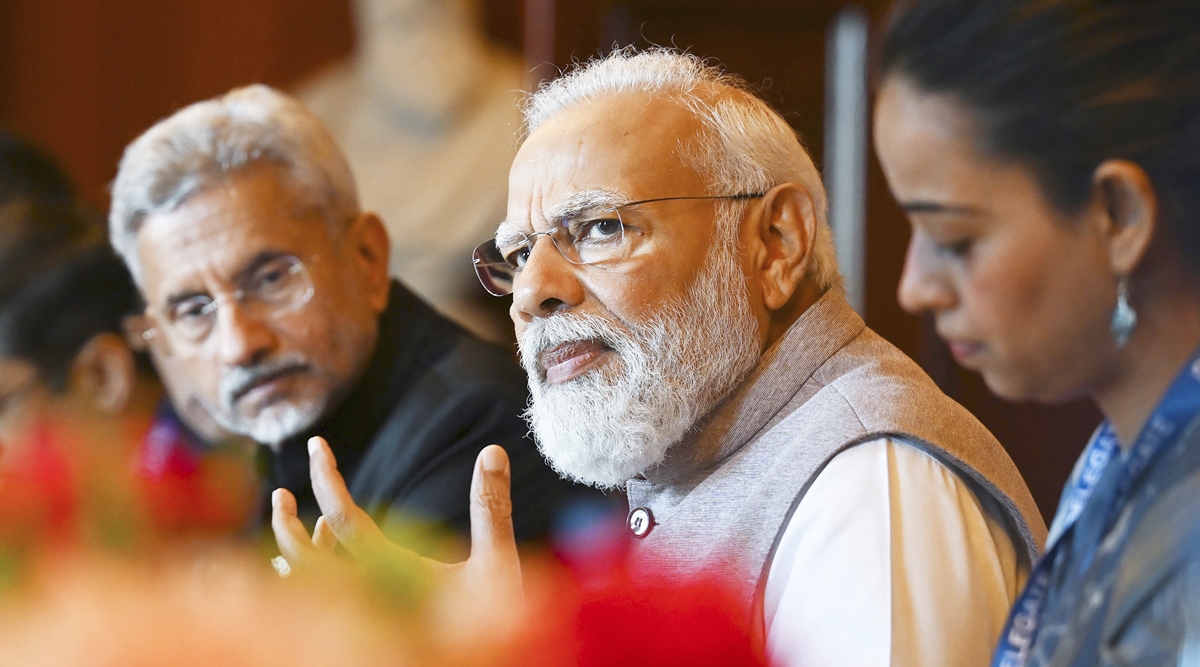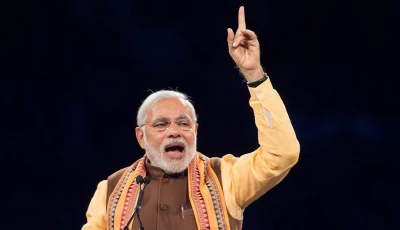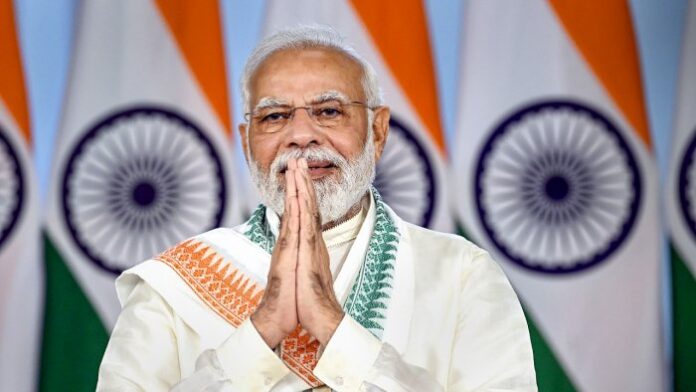India Challenges Biased Global Rankings on Press Freedom and Governance
In a bid to defend its stance on press freedom and governance, India has embarked on a mission to counter what it perceives as “agenda-driven” and “neo-colonial” country rankings. Sanjeev Sanyal, a prominent member of Prime Minister Narendra Modi‘s Economic Advisory Council, revealed in an exclusive interview with Reuters that India has taken steps to address this issue on the global stage. Sanyal voiced concerns over the compilation of indices by a select few think-tanks predominantly based in the North Atlantic region, allegedly supported by a handful of funding agencies that appear to be advancing their own real-world agendas.
Unmasking the Flaws: India’s Fight Against Biased Global Rankings on Press Freedom and Governance
Sanyal emphasized that the consequences of these rankings extend far beyond mere narratives. They have a direct impact on crucial aspects such as trade, investment, and various other activities. Disturbingly, India found itself ranked lower than both Afghanistan and Pakistan in the latest World Press Freedom Index released by Reporters Without Borders. Similarly, it trailed behind Pakistan and Bhutan in the academic freedom index compiled by the V-Dem Institute.
Over the past year, India has repeatedly pointed out the methodological flaws employed by global indices used by esteemed institutions like the World Bank, World Economic Forum (WEF), and the United Nations Development Programme (UNDP), Sanyal revealed. The involvement of the World Bank in this issue is particularly significant, as it effectively endorses the opinions of these select think-tanks by incorporating them into a comprehensive framework known as the World Governance Index.
Despite requests for comment, the World Bank, WEF, Reporters Without Borders, and the V-Dem Institute did not immediately respond. The UNDP, however, assured a timely response to the concerns raised by India.
Sanyal also emphasized that these rankings have a profound impact on decision-making processes, permeating through environmental, social, and governance (ESG) norms as well as sovereign ratings. Multilateral development banks often offer subsidized loans exclusively to projects that comply with ESG standards.
“While the notion of ESG norms itself is not problematic, the issue lies in the definition of these norms and the entities responsible for certifying compliance,” Sanyal stated. He further highlighted the exclusion of developing countries from the ongoing conversations surrounding these norms, stating, “As things are currently evolving, developing countries have been completely left out of the conversation.”
Shaping a Fair Narrative: India’s Resolute Stand for Transparency and Inclusive Country Assessments
Recognizing the significance of this matter, India’s Cabinet Secretariat has dedicated substantial efforts to address it, convening over a dozen meetings on the issue this year alone, according to a government official. However, both the Cabinet Secretariat and the finance ministry declined to provide immediate comments.
India, under its G20 presidency, aims to champion the cause of developing nations. While Sanyal did not specify whether India has raised the issue of country rankings within the G20, he noted that several other developing countries share the same concerns, as they perceive these rankings as a form of neo-colonialism. Sanyal revealed that concerned ministries have been instructed to establish benchmarks and maintain continuous engagement with ratings agencies.
Sources indicate that India is closely monitoring several upcoming indices, including the financial development index by the International Monetary Fund, gender inequality and human development indices by the UNDP, and the logistics performance and worldwide governance indicators by the World Bank.
India’s strong stand against biased global rankings on press freedom and governance underscores its commitment to ensuring fairness, objectivity, and an equitable representation of developing countries in global assessments. By challenging the dominance of a select few think-tanks and advocating for a more inclusive and transparent process, India strives to shape a global narrative that reflects the diverse perspectives and realities of nations worldwide.
In a resolute move to safeguard press freedom and governance, India has taken a proactive stance against what it perceives as “agenda-driven” and “neo-colonial” country rankings. Sanjeev Sanyal, a distinguished member of Prime Minister Narendra Modi’s Economic Advisory Council, disclosed in an exclusive interview with Reuters that India has embarked on a comprehensive effort to address this contentious issue on the global stage. Sanyal voiced his concerns over the creation of indices by a select group of think-tanks predominantly situated in the North Atlantic region. These think-tanks, allegedly sponsored by a few funding agencies, have been accused of advancing their own real-world agendas.
Highlighting the tangible consequences of these rankings, Sanyal emphasized their far-reaching impact on critical aspects such as trade, investment, and various other activities. Disturbingly, India found itself ranked lower than both Afghanistan and Pakistan in the recent World Press Freedom Index published by Reporters Without Borders. Similarly, it trailed behind Pakistan and Bhutan in the academic freedom index compiled by the V-Dem Institute.

